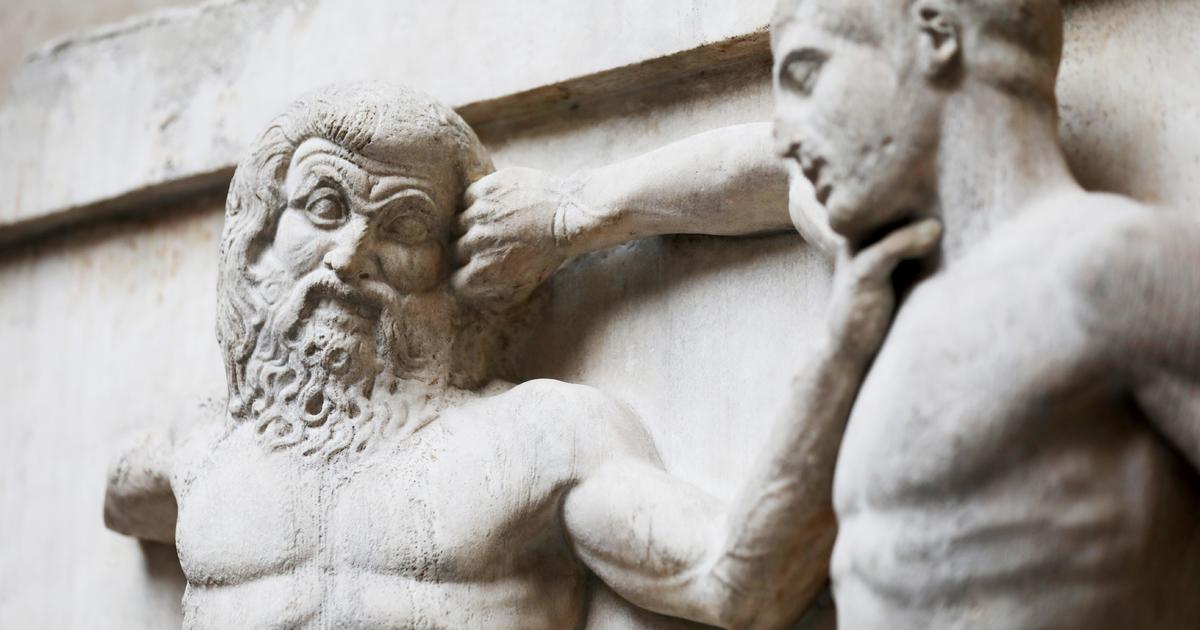/ CBS News
Despite a rocky political history between the two countries, Britain has loaned one of its Elgin Marbles to Russia
London — The U.K. government has cancelled a meeting between Prime Minister Rishi Sunak and his Greek counterpart amid a diplomatic row over which of the two nations should hold a collection of ancient Greek sculptures.
Greece and Britain have long argued over the Parthenon Sculptures, also known as the Elgin Marbles, which were once part of the Temple of Athena on the Acropolis in Athens. For years they have been part of the permanent collection at London's British Museum.
Prime Minister Kyriakos Mitsotakis had been expected to meet Sunak in London on Tuesday, but late Monday night, the Greek leader issued a statement to "express my annoyance at the fact that the British prime minister has cancelled our planned meeting a few hours before it was due to take place."

Speaking Sunday to the BBC, Mitsotakis said that having half of the Elgin Marbles in the U.K. was like "cutting the Mona Lisa in half," describing the sculptures as having been "essentially stolen" from Greece.
According to the BBC, Sunak's office at 10 Downing Street believed it had received assurances that the Greek leader would not mention the Parthenon sculptures on his trip to the U.K., but the BBC quoted a Greek official as denying that.
Sources close to the Greek government told the BBC that Mitsotakis was "baffled" and "annoyed" by the snub.
The U.K. opposition Labour party, who are leading Sunak's Conservatives in the polls by a wide margin ahead of an election year, called the row "pathetic." Labour leader Keir Starmer met with Mitsotakis on Monday.
The British Museum is not allowed to return the sculptures to Greece under U.K. law, but officials at the museum have discussed a long-term loan deal with Greek officials, something Labour has said it wouldn't oppose.
"Our position is clear," the BBC quoted a senior Conservative lawmaker as saying: "The Elgin Marbles are part of the permanent collection of the British Museum and belong here. It is reckless for any British politician to suggest that this is subject to negotiation."

The sculptures that formerly decorated the Parthenon temple were removed more than 200 years ago by Lord Elgin of Scotland. They have been displayed at the British Museum in London since 1817, when Elgin sold the marbles to the British government.
The year before the sale, a British parliamentary committee deemed his actions "entirely legal."
The Greek culture ministry tells a different story, however.
"By using methods of bribery and fraud, Elgin persuaded the Turkish dignitaries [of the then Ottoman Empire] in Athens to turn a blind eye while his craftsmen removed those parts of the Parthenon they particularly liked," reads a since-deleted page on its website. "Elgin's team was active on the Acropolis, hacking off and causing considerable damage to the sculptures and the monument, eventually detaching and dismembering a significant part (more or less half) of the remaining sculpted decoration of the Parthenon."
In 1983, Greece formally requested that all Parthenon sculptures be returned and, in 2009, it built the Acropolis Museum in Athens to house originals from the temple and "plaster copies of those retained in the British Museum and other foreign Museums."
On Tuesday, former Greek culture minister Irene Stamatoudi told the BBC the squabble "makes Rishi Sunak look no better than Lord Elgin."
The British Museum has been embroiled in multiple controversies over artifacts obtained during the colonial period.
Egypt, Nigeria, Iran and other countries have demanded the return of what they insist are stolen artifacts over the years.
Since 1997, the British Museum has been researching whether, "works that had previously been stolen by the Nazis in the period 1933–1945 had unwittingly been acquired" and become part of its collections, according to its website.
Frank Andrews is a CBS News journalist based in London.
Thanks for reading CBS NEWS.
Create your free account or log in
for more features.
